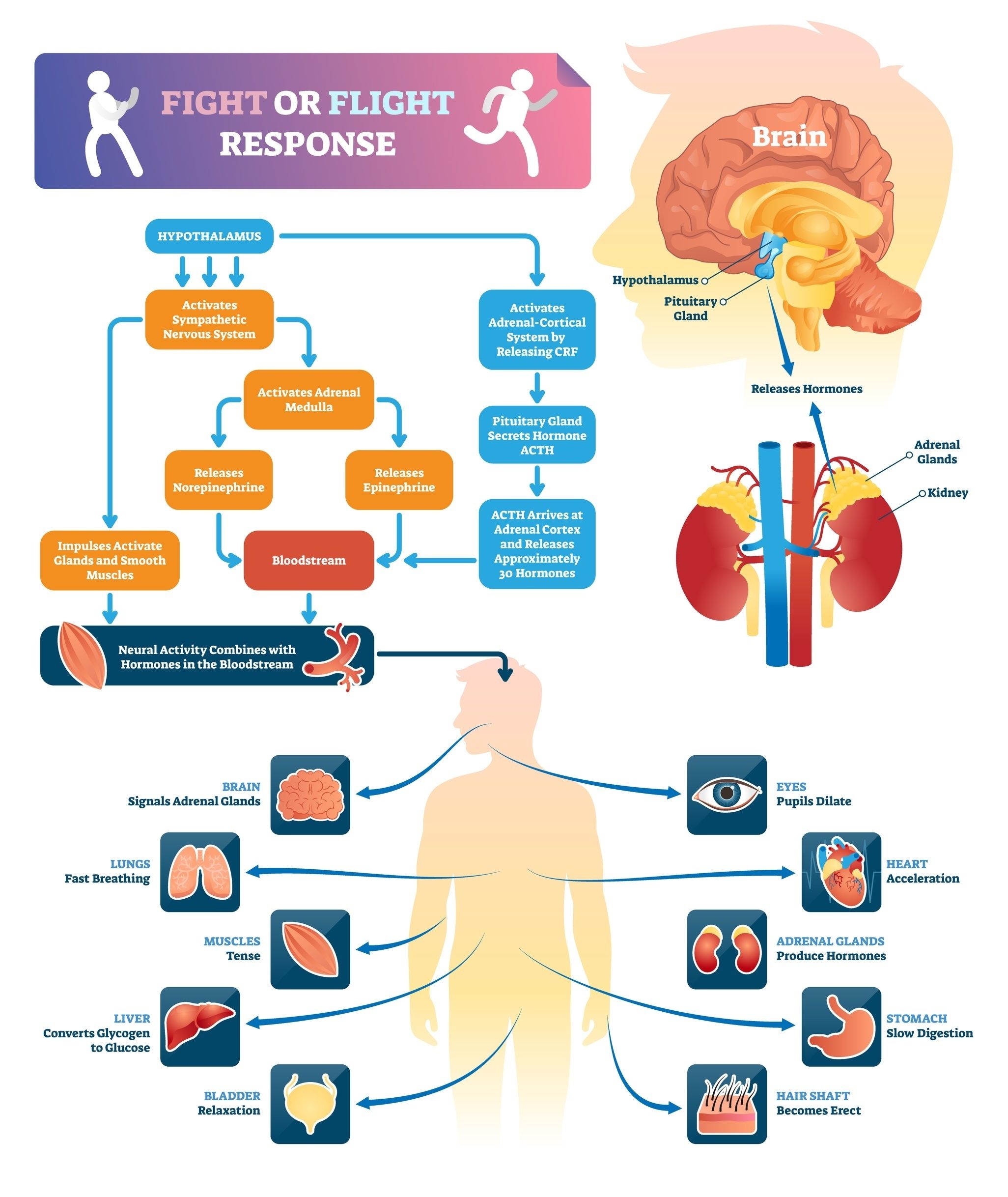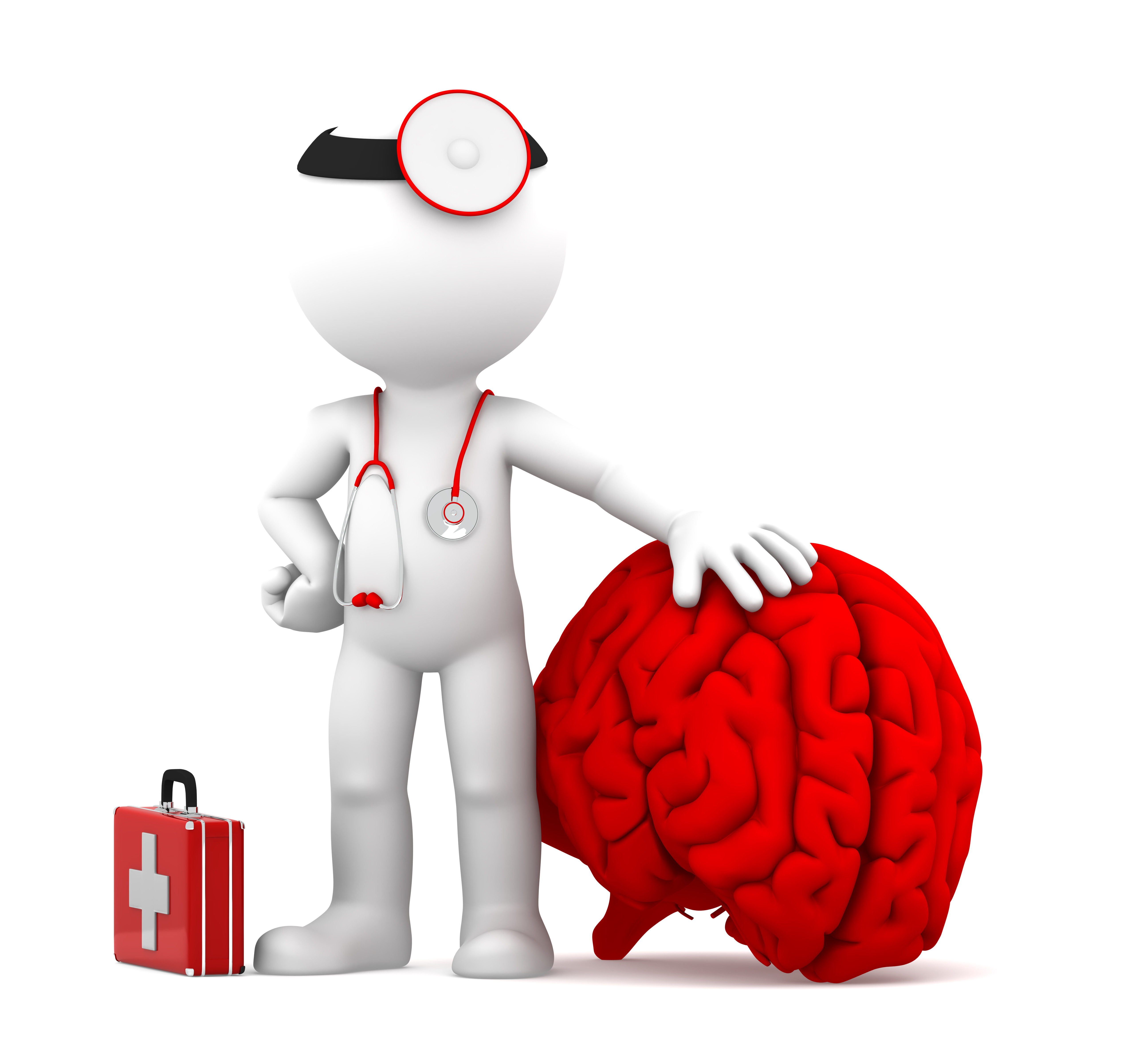Anxiety and What to Do When It Becomes a Problem
Lesson 5
Everybody is familiar with the feeling of being anxious; hands feel hot and clammy, your heart rate quickens and feels so loud like it is banging on your rib cage, and your breathing is equally fast and you just can’t concentrate. Known as ‘flight or fight’, it is a normal human reaction to a difficult and challenging situation when deciding whether to take on the difficulty or run to safety in self-preservation.
After just a short space of time, the moment and the anxiety it has caused have passed and the body returns to normal. It is a feeling that everybody experiences occasionally, but for many people, anxiety becomes a regular occurrence and fears develop about how to cope with everyday situations.
Soon anxiety begins to interfere with that person’s daily life and it is time to seek medical help.
Anxiety mixed with depression is the most common health disorder in Britain, affecting 8% of the population.
‘Across the pond’ in the United States, 18.1% of the population aged between 18-54 years – that’s 40 million people – suffer from anxiety and that is the number that doctors know about.
There are going to be many more people suffering in silence. Worldwide, 260 million people are currently suffering from anxiety disorders.

So, When Does Anxiety Become a Problem?
Whilst the occasional feeling of great anxiety is felt by us all, for those with an anxiety disorder, feeling intense anxiety with persistent fears and worries becomes ever more frequent and for some, their feeling of anxiety peaks with a panic attack.
Their feelings of anxiety become more difficult to control and it really begins to impact their life including their work and relationships. The good news is that, with the right guidance, these problems can be tackled and overcome.
If you feel that your anxious thoughts are becoming increasingly more frequent and are starting to get the better of you, it is well worth popping to see your GP sooner, rather than later.
What Causes Anxiety
All the reasons people develop anxiety disorders are not yet known, but there is a whole range of causes that have been pinpointed and those suffering from an anxiety disorder often have one or more of these ‘triggers’. Each person is different and some are more prone to mental health problems such as anxiety and depression than others.
Many people’s condition is triggered by the development of one of many medical conditions including heart disease, diabetes and thyroid problems. Sometimes it is a traumatic event or illness in a person’s life that can start the problem and anxiety can be substance induced or triggered by the misuse of drugs.
Specific phobias can cause an anxiety disorder and these include agoraphobia – a fear of places and situations – and social phobia, when a person finds it really tough to mix socially with others as they are self-conscious and embarrassed, fearing that everyone is being judgemental and looking at them negatively. Sufferers of Obsessive Compulsive Disorder (OCD) and Post Traumatic Stress Disorder (PTSD) often develop anxiety disorders.
Life soon becomes a downward spiral as the sufferer begins to avoid situations that they fear will trigger their anxiety and they start to isolate themselves, worrying unnecessarily about small, everyday things and larger more important ones, such as their relationships, work and money.

What Help is Available
If you are feeling increasingly anxious and the level of anxiety is becoming more intense, it is time for you to make an appointment to see your GP. Don’t put this off.
There is absolutely no stigma attached to having a mental disorder these days and as TV psychologist, Linda Papadopoulos explained, if you had a problem with your leg or another part of your body, you would not hesitate in making that appointment.
There are several good ‘self-help’ things to do to help ease your anxiety and top of the list is exercise. Whether you enjoy walking, running or cycling, try to complete three to four 30-minute slots a week, but just make a start.
Ensure that you are getting a good night’s sleep – seven to eight hours is the recommended dose! Avoid caffeine, alcohol and cigarettes as these can affect how you feel. If you would like to try a herbal remedy, lavender and chamomile are just two of a selection of popular herbal treatments that are widely available. If you find yourself getting increasingly anxious and having suicidal thoughts, seek emergency help immediately.
Although treatment for some is the use of Benzodiazepines (anti-anxiety drugs), one of the most popular and successful treatments in Britain is Cognitive Behavioural Therapy (CBT). CBT is a series of regular (weekly or fortnightly) one-to-one talking sessions with a trained therapist who helps you to focus on your current problems and to identify the triggers for your anxiety and then helps you identify and challenge your negative and at times, overwhelming, thoughts, emotions and actions.
You will change your thought patterns to become more positive and proactive in dealing with life’s challenges.
The therapist takes things at your pace and does not delve into your past but concentrates on the present.
They help you to work out how to change your unhelpful thoughts and actions and you are asked to put these changes into action between sessions. At the next session, you discuss together how successful these changes were.
The aim of CBT is to help you to manage problems effectively and to stop them having a negative impact on your everyday life, so why not make that appointment with your GP today?
